We’ve had some notable program developments this season in POP’s School Orchard Program with expanded offerings and reach to our school partners locally, in the expanded regional community, and country-wide. Since January, we’ve taught 28 lessons to 8 school and supported community orchard partners including Overbrook School for the Blind, Sayre High School, Fox Chase Farm, Greenfield Elementary School, Tilden Middle School, Richard Allen Preparatory Charter School, Penn Alexander School, and Lea Elementary School and made 310 student impressions; this marks a 67% increase year-on-year in students served!
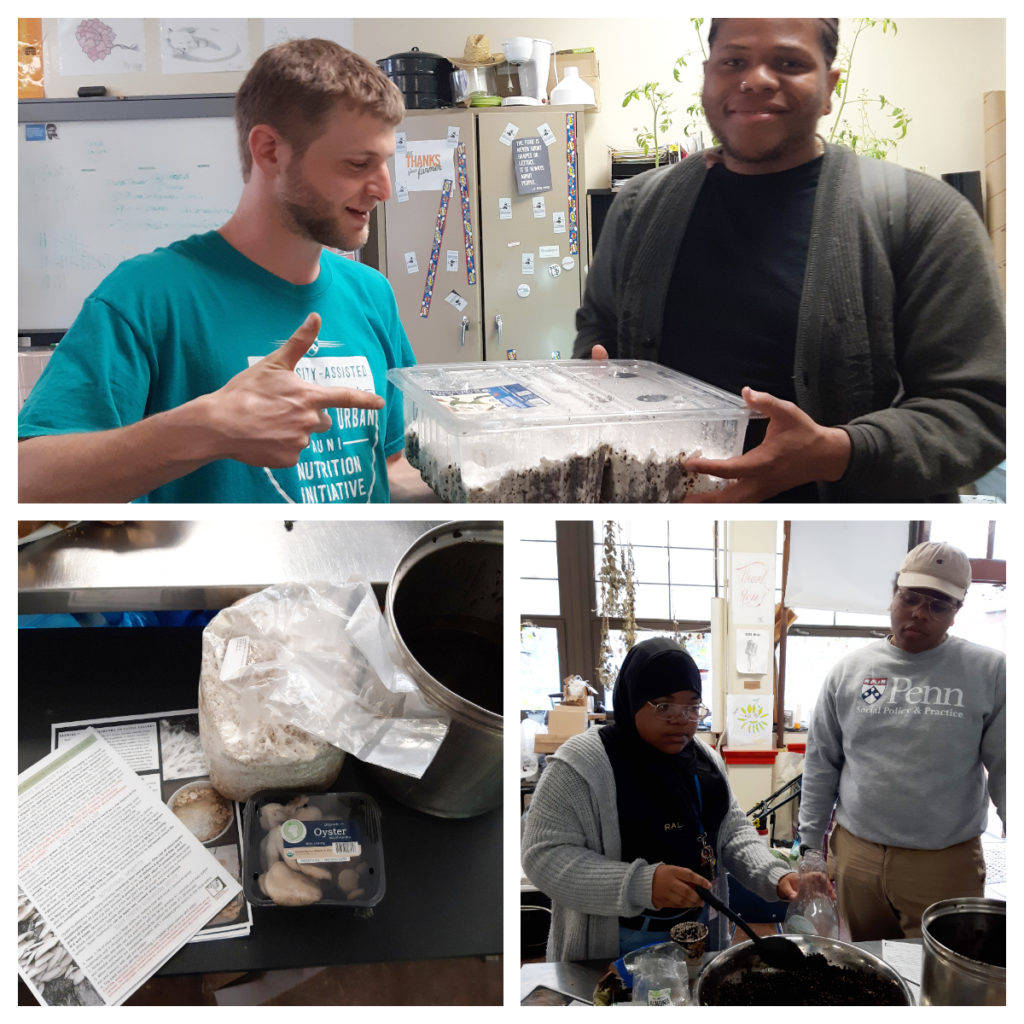
Lessons & New Materials
Lessons included fruit-themed lessons on the care and preparation of elderberries and blackberries (Richard Allen, Sayre HS), oyster mushroom cultivation and natural candy-making (Sayre HS), a 2nd-grade, 4-lesson unit on Simple Machines and Ingenuity of African American Inventors (Lea ES), compost tea making (Penn Alexander), and 4 lessons on raised garden bed care and seed-ball making (Tilden MS). We’re getting these materials up on our resource page but you can see some of the supporting worksheets for your classroom tie-ins, as well as new plant info sheets, and Bi-Lingual Rainbow Nutrition & Recipe Cards linked in the topic sections above!
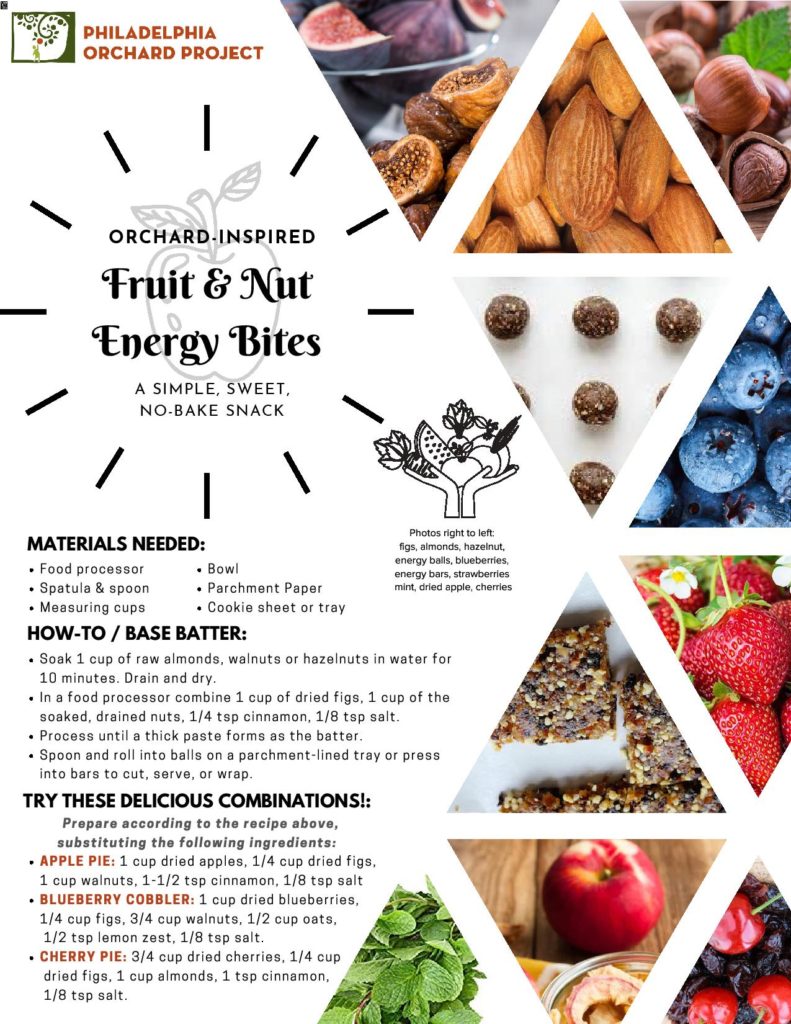
Program Highlights
– Cramp Elementary School was awarded a $1,000 grant from the Trust for Public Land to support stewardship of the school gardens, orchard, and habitat gardens supported by Interpret Green! An incredible team of 10+ parents, teachers, and artists have been supporting this site in its establishment with regular watering, maintenance, and care. Starting in the fall, we’ll be programming out 8 lessons with elementary teachers!
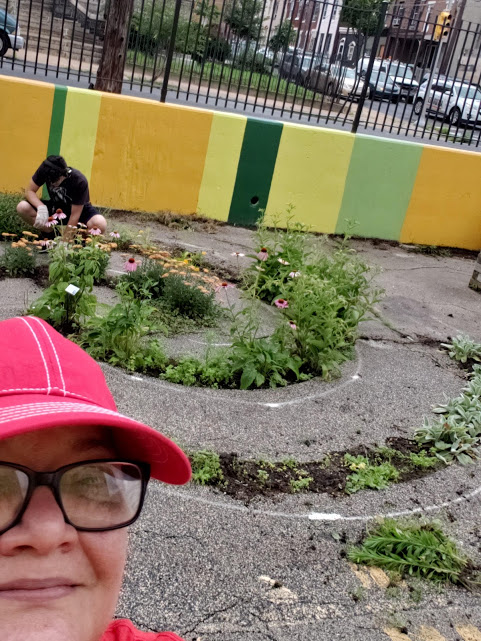
– This spring, we were fortunate to host 4 environmental studies student researchers from Swarthmore College who worked with us for 10 weeks on the issue of supporting threatened pollinator habitat. During our course together, students had a range of research-based and hands-on learning activities including researching and writing issue-briefings (Native Bees, Monarchs), interviewing professionals in the fields of pollinator habitat loss and restoration (Former Pollinator Master Gardener Howard Goldstein, Ecological Landscaper Tom Sullivan), writing lesson plans, starting seedlings for pollinator-friendly species to distribute to community partners at the Fairmount Park Horticultural Center’s Community Propagation Program, and hosting a seed-ball making workshop to share ready-to-grow seeds and info-sheets to community partners, volunteers, and the wider public.
Many of these materials and interviews are now being posted to our blog so check them out here! Our project was also sponsored by Johnny’s Seeds who provided us with pollinator-friendly seed mixes for our outreach initiatives. Some of these seed balls will be shared with attendees at our upcoming Orchard Dinner on Sept. 19th.
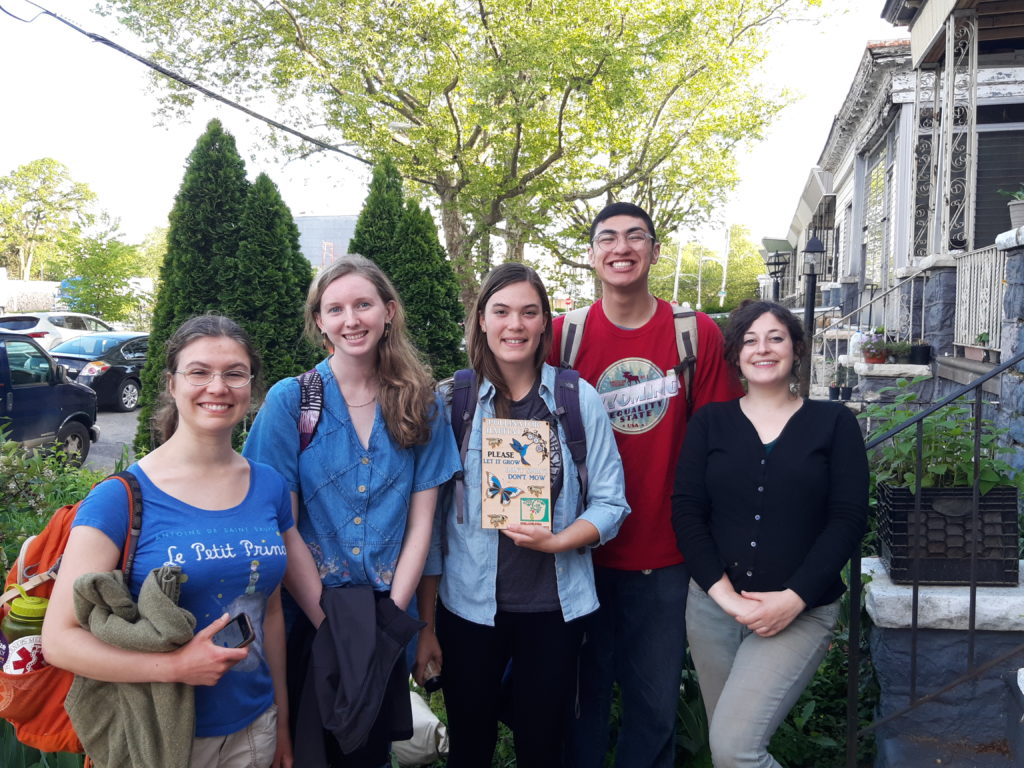
– In late July, POP Education Director Alyssa Schimmel and teacher Lee Stough of Overbrook School for the Blind were fortunate to be selected and attend a National Sustainability Teachers’ Academy at Montana University, organized by Arizona State University’s School of Sustainability. We were among 30 teachers from around the country in this 5-day seminar looking at how to bring sustainability education into the classroom and to support in-school projects geared around sustainability efforts. As an outgrowth of our work with GrowAbility, we are currently working to support Overbrook School for the Blind in developing a waste stream reduction program that will incorporate composting in the cafeteria, vermi-compost, recycling education, and artistic repurposing of materials, all of which will be supported with sensory-based education books. The Teachers’ Academy is free to attend for those selected and provides stipends for teachers to implement programming at their schools. Share this with teachers you know for next summer programming: https://sustainability.asu.edu/sustainabilitysolutions/programs/teachersacademy/
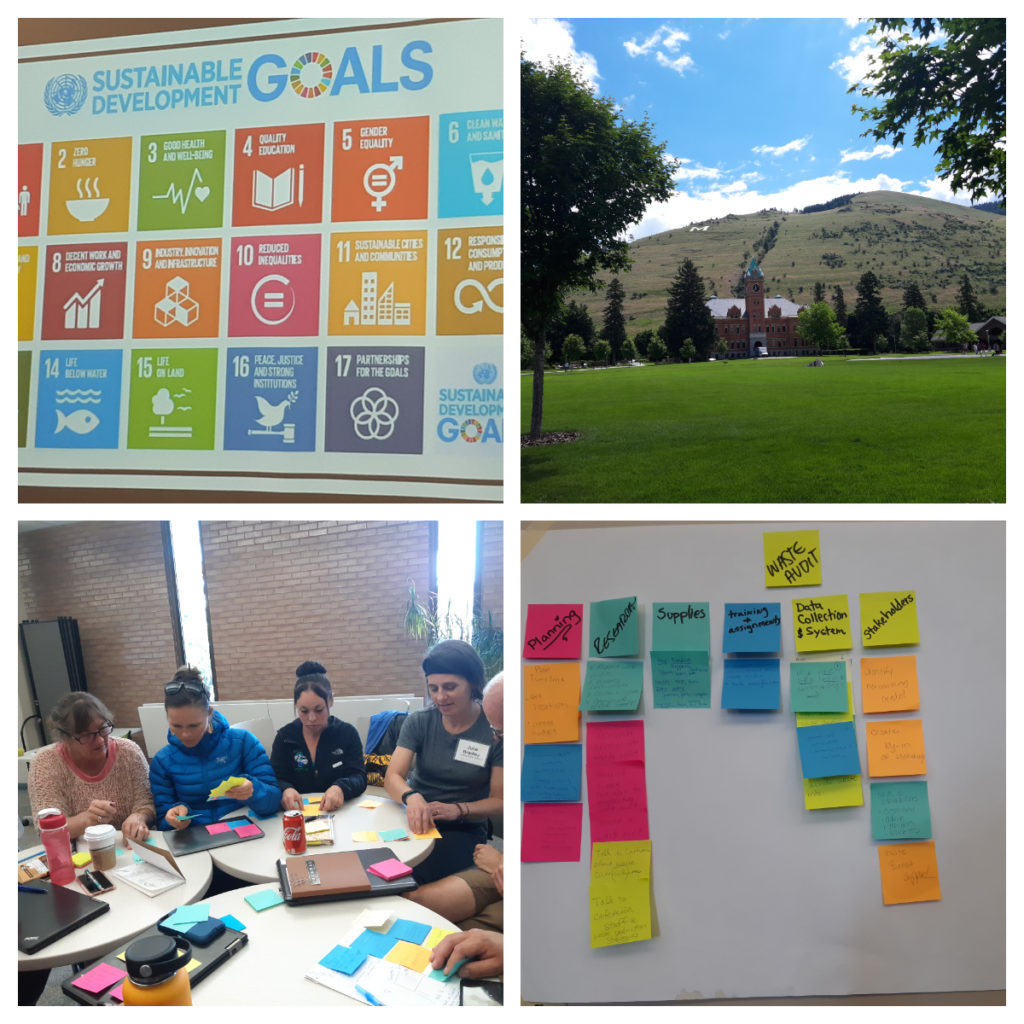
– Repair the World Fellow Megan Brookens completed her 2-year fellowship with POP. She was an incredible support for our programming the last 2 years and helped with making writing educational materials, info sheets, blogs, and supported volunteerism at a number of our school and community orchard sites. She plans to continue her studies of how communities adapt to changing climate through her studies of water-based projects and permaculture sailing and water restoration projects.
This POP program update written by Education Director Alyssa Schimmel.
SUPPORT US! If you found this entry useful, informative, or inspiring, please consider a donation of any size to help POP in planting and supporting community orchards in Philadelphia: phillyorchards.org/donate.